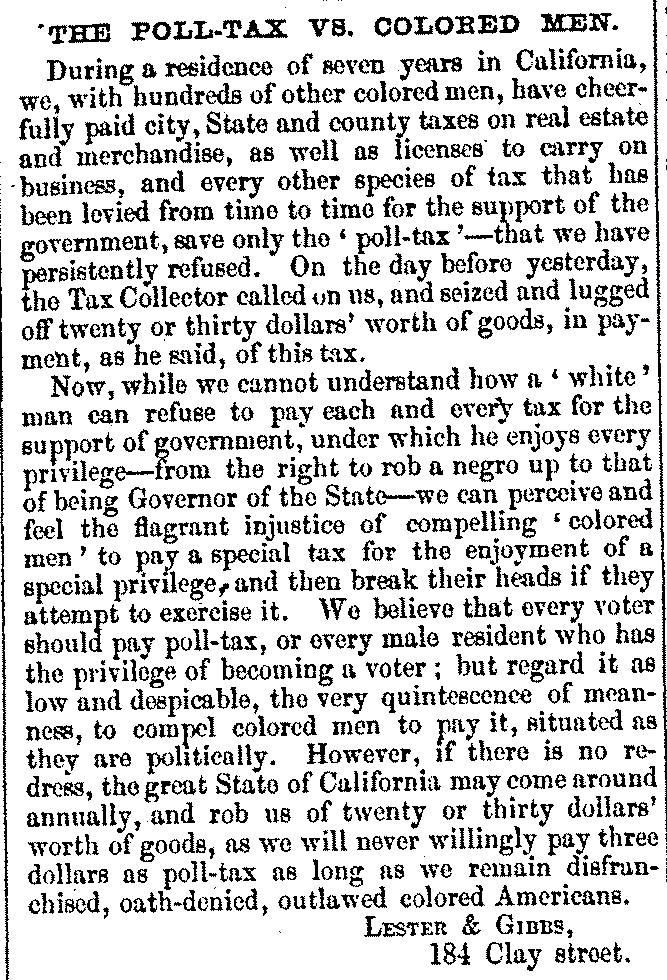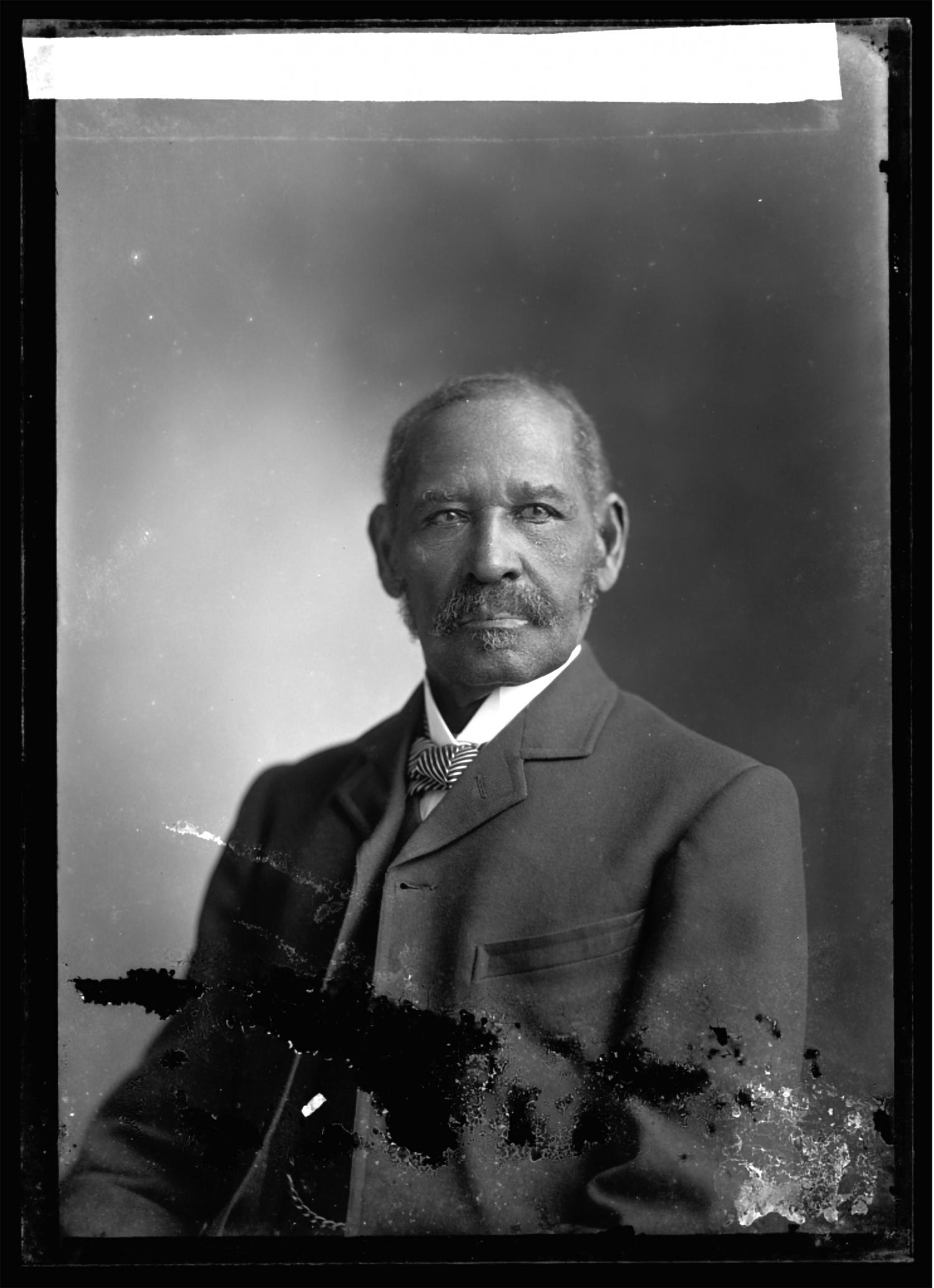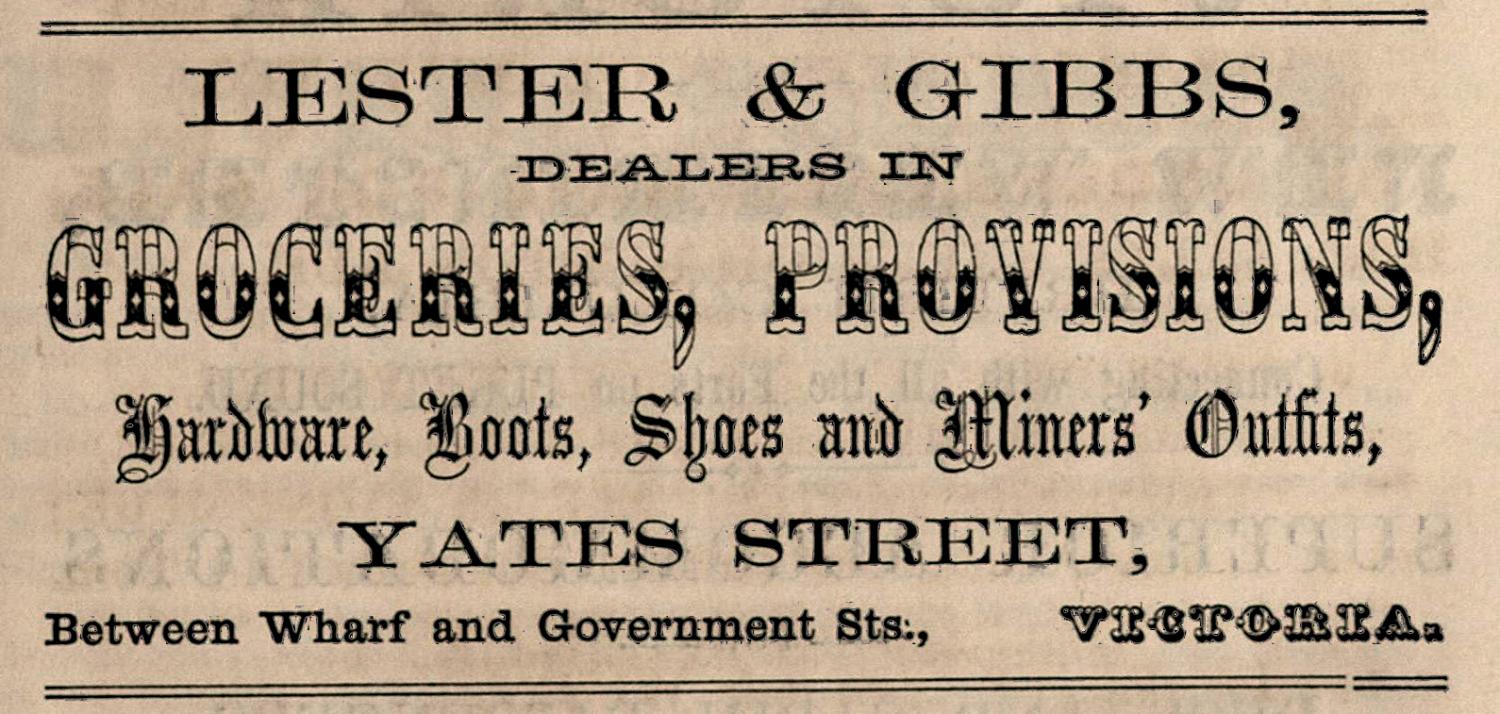Mifflin Gibbs Elected
An American businessman becomes B.C.'s first Black elected official
Date: 1866
Mifflin Wistar Gibbs came to Victoria in 1858, a Black businessman fleeing racism in California. He returned to the United States just over a decade later as British Columbia’s first Black person elected to public office.
Born to a poor, non-enslaved family in Philadelphia in 1823, Gibbs was a prolific young man. During his early years, he gave lectures alongside famous abolitionist Frederick Douglass and took part in the Underground Railroad, which helped enslaved Blacks in the South escape to Canada or the free Northern states. Eventually, the California Gold Rush lured Gibbs out west. In 1850, he arrived in San Francisco and prospered as a boot merchant and publisher of an antislavery newspaper called Mirror of the Times.
Despite California's status as a non-slaveholding state, life as a Black entrepreneur was not easy. When Gibbs and his business partner Peter Lester refused to pay the state's poll tax because they weren't allowed to vote, authorities seized their goods and put them up for auction. Fed up with persistent persecution, San Francisco's Black community began looking for a new place to live in the late 1850s. Gibbs took a leading role in the search. In 1858, upon invitation from James Douglas, then-governor of the Colonies of Vancouver Island and British Columbia, Gibbs and an estimated 800 other Black migrants packed their bags and headed north. If they pledged allegiance to the British Crown, Douglas promised the newcomers equal opportunity before the law, the right to vote, and the ability to purchase land and open businesses.
Gibbs created tremendous success for himself in Victoria. Shortly after arriving, he opened a general store with Lester. The pair became the Hudson's Bay Company's first local competitor. In November 1866, Gibbs became B.C.'s first Black person elected to public office when he was elected to Victoria's city council as a representative of the James Bay district. He also had a hand in B.C.'s talks about joining the Dominion of Canada, a cause he firmly supported. Despite this success, Gibbs continued to confront racism. When he attended a theatre in Victoria with his wife and a couple of friends, white thugs threw flour on the group, the theatre's first Black attendants.
In 1870, Gibbs returned to the United States amid an era known as Reconstruction, when Black people enjoyed previously unseen political power. After settling in Little Rock, Arkansas, he struck another first, becoming the country's first elected Black judge. He later served as an American diplomat in Madagascar. In 2016, the City of Victoria made Nov. 19 –– the same day Gibbs was elected to city council –– "Mifflin Wistar Gibbs Day."
Sources:
1. Cartwright, Peggy. Black Pioneers in Gold Rush Days. P. Cartwright, 1993.
2. Killian, Crawford. Go Do Some Great Things: The Black Pioneers of British Columbia. Commodore Books, 2008.
3. Mifflin Wistar Gibbs. BC Black History Awareness Society, bcblackhistory.ca/mifflin-wistar-gibbs/.
4. Obee, Dave. “Dave Obee: 1861 Theatre Ruckus Sparked Racism Debate.” Times Colonist, 19 Nov. 2016, www.timescolonist.com/dave-obee-1861-theatre-ruckus-sparked-racism-debate-1.2939318.
5. White, Evelyn C., and Joanne Bealy. Every Goodbye Ain't Gone: a Photo Narrative of Black Heritage on Salt Spring Island. Dancing Crow Press, 2009.
6. Why They Came and the Pioneer Committee. BC Black History Awareness Society, bcblackhistory.ca/why-they-came-and-the-pioneer-committee/.




